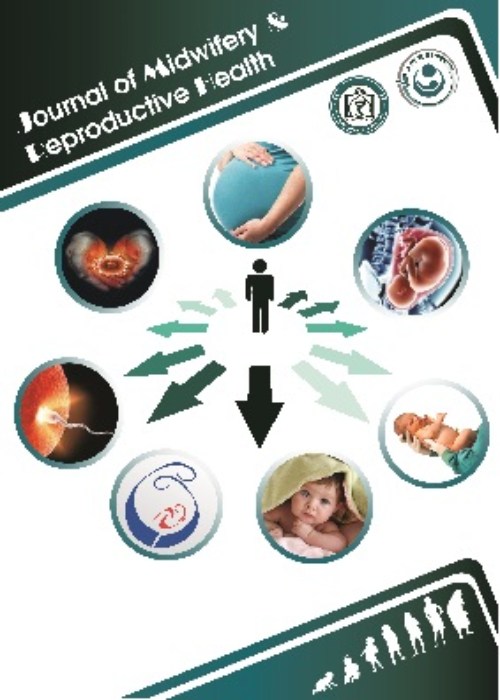Religious Beliefs and Fertility Preferences among Engaged Couples, Referring to Premarital Counseling Centers of Mashhad, Iran
Author(s):
Abstract:
Background and Aim
Considering the lack of information regarding the effects of religion on young couples’ fertility preferences, this study aimed to evaluate the relationship between religious beliefs and fertility preferences among engaged couples in Mashhad, Iran, in 2013. Methods
This cross-sectional study was conducted on 450 engaged couples, referring to premarital counseling clinics at healthcare centers of Mashhad. Convenience sampling was applied and data were collected using Miller’s Fertility Preferences and Childbearing Questionnaires (1995), Khodayari's Religious Attitude Questionnaire, and a demographic questionnaire; all four questionnaires were completed by the participants. Spearman's correlation, Chi-square test, Mann-Whitney, and Kruskal-Wallis tests were used for data analysis. The significance level was considered to be 0.05. Results
Scores of religious beliefs were low, moderate, and high among 5.7%, 62.1%, and 32.2% of the couples, respectively. Childbearing desires (P≤0.001), ideal number of children (P≤0.001), and birth interval (P≤0.001) showed significant differences in groups with low, moderate, and high scores of religious beliefs. The mean number of children desired by the groups with low, moderate, and high religious belief scores was 2.24±1.49, 2.21±0.87, and 2.69±1.37, respectively. In total, 42.2% of the participants were moderately affected by religious beliefs. Conclusion
Fertility motivations and the ideal number of children were higher among individuals with stronger religious beliefs; however, even among these religious people, fertility preferences were not favorable, compared to figures recommended by reproductive health policymakers. These findings can contribute to the improvement of reproductive indices and fertility reforms towards higher fertility rate in the country.Keywords:
Language:
English
Published:
Journal of Midwifery & Reproductive health, Volume:2 Issue: 4, Oct 2014
Pages:
238 to 245
magiran.com/p1319988
دانلود و مطالعه متن این مقاله با یکی از روشهای زیر امکان پذیر است:
اشتراک شخصی
با عضویت و پرداخت آنلاین حق اشتراک یکساله به مبلغ 1,390,000ريال میتوانید 70 عنوان مطلب دانلود کنید!
اشتراک سازمانی
به کتابخانه دانشگاه یا محل کار خود پیشنهاد کنید تا اشتراک سازمانی این پایگاه را برای دسترسی نامحدود همه کاربران به متن مطالب تهیه نمایند!
توجه!
- حق عضویت دریافتی صرف حمایت از نشریات عضو و نگهداری، تکمیل و توسعه مگیران میشود.
- پرداخت حق اشتراک و دانلود مقالات اجازه بازنشر آن در سایر رسانههای چاپی و دیجیتال را به کاربر نمیدهد.
In order to view content subscription is required
Personal subscription
Subscribe magiran.com for 70 € euros via PayPal and download 70 articles during a year.
Organization subscription
Please contact us to subscribe your university or library for unlimited access!


